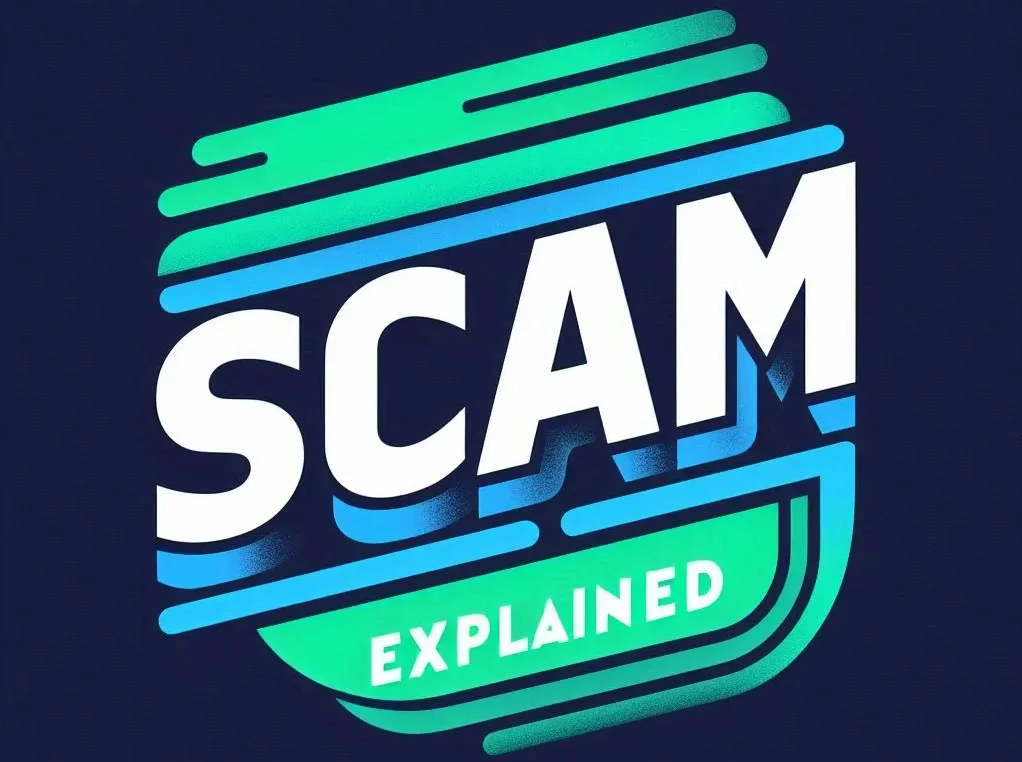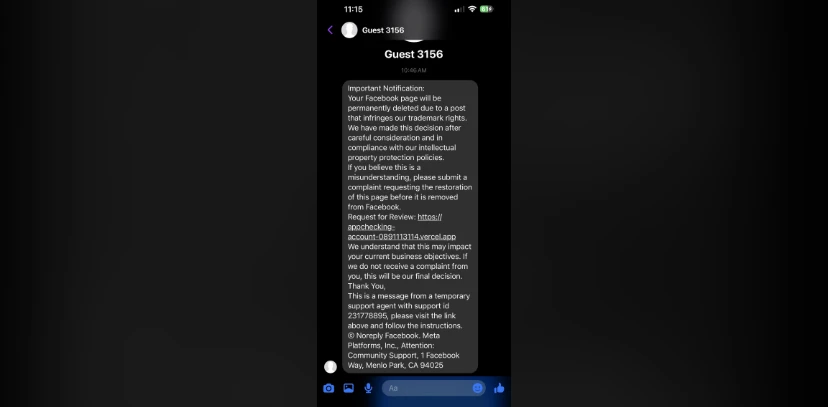In the age of digital connectivity, social media has become a hotbed for scammers looking to exploit unsuspecting users. One such scam is the ‘Your Facebook Page Will Be Permanently Deleted’ con trick that has been making the rounds.
This seemingly straightforward notification has caused panic among users, leading them to make hasty decisions that put their personal data at risk. Let’s delve into what this scam is all about, how to spot it, the potential aftermath, and how to protect yourself.
Understanding the ‘Your Facebook Page Will Be Permanently Deleted’ Scam
This scam unfurls like a well-plotted drama, with the first act playing out in your inbox or notifications. Picture this: you’re the admin of a Facebook Page and you receive an alarming message. It claims that your page is in violation of Facebook’s terms and conditions, resulting in the threat of permanent deletion.
The pressure mounts as it implores you to resolve the issue promptly to avoid the irreversible loss of your page. Now here’s the catch, this urgent call to action often includes a link, beckoning you to click on it. Resist the urge! This seemingly innocuous click is a trap.
That link is a road that leads to a convincing, yet fraudulent site crafted with one aim – to swindle your Facebook login details and perhaps even more of your precious, personal information.
It’s a masterstroke in the art of deception, taking advantage of your fear and urgency. But forewarned is forearmed, right? Let’s delve further into identifying the signs of this artfully crafted scam.
Recognizing the Signs of a Scam
Detecting a scam is a lot like solving a mystery, with each clue providing a pathway to the truth. With the ‘Your Facebook Page Will Be Permanently Deleted’ scam, there are specific indicators to guide your investigation. First off, scrutinize the sender’s details.
If it isn’t an official Facebook email or notification, it’s possibly a scam. Look at the language used. Genuine Facebook warnings don’t pressure or rush users into immediate action. If there’s a sense of urgency pushing you to click a link, that’s a strong sign of a scam.
Also, watch out for grammatical errors or awkward phrasing. Despite their cunning, scammers often fall short in their command of language. Remember, Facebook will never ask for your password via email or messaging. If the message asks for your credentials, that’s a surefire sign of a scam.
Lastly, and perhaps most crucially, be wary of any links included in the message. Hover over the link without clicking it to see where it leads. If it doesn’t direct to an official Facebook URL, it’s likely a trap. Always remember, in the grand puzzle of internet safety, each piece of evidence counts. You’ve got the detective skills – use them to protect your online presence.
The Consequences of Falling for the Scam
Becoming a victim of this scam can set off a cascade of alarming outcomes. For starters, imagine waking up to find yourself locked out of your own Facebook account because the tricksters have taken over and changed your password.
More disturbingly, they can turn your account into a scam-spreading machine, tricking your friends by sending them messages or making posts while posing as you. And the threat isn’t confined to Facebook alone.
The scam artists may now have your personal information in their grasp, opening the floodgates to possible identity theft. The fallout from this can range from unauthorized transactions in your name to being held responsible for fraudulent activities.
The impacts are far-reaching and can deal a heavy blow to your digital, financial, and personal life. Therefore, understanding the repercussions of this scam is the first step towards defending your digital space from these online predators.
How to Protect Yourself from the Scam
Navigating the digital world safely requires a blend of prudence and savvy. The first line of defense is skepticism—be wary of clicking on any link that appears suspicious, no matter how urgent the message seems. Messages pressuring you to act quickly or threatening severe consequences are red flags.
Next, thoroughly inspect the source of the message. Look for tell-tale signs of a con: the email or notification originates from a URL that’s not an official Facebook address. If so, it’s probably a scam.
However, even scammers can be sophisticated, impersonating official Facebook messages with striking accuracy. Therefore, any doubts you may have about a message, no matter how miniscule, should be addressed directly with Facebook support.
Protecting your personal information doesn’t stop at your inbox. Always ensure your Facebook account has strong, unique passwords and is equipped with two-factor authentication. This adds an extra layer of protection, making it harder for scammers to access your account even if they have your password.
Finally, remember that knowledge is power. Stay updated about the latest scam tactics and share this information with your friends and family. Being informed not only shields you from scams but also reduces their spread, making the digital world safer for everyone. So, keep your eyes open, stay skeptical, and remember: your online safety lies in your hands.
What to Do if You’ve Fallen Victim
The moment you realize you’ve been ensnared by this scam, swift action is essential to minimize damage. Initiate the cleanup by changing your Facebook password right away. If your password for other accounts mirrors the one for Facebook, it would be prudent to alter those as well.
Then, thoroughly investigate your Facebook account for any strange activities such as posts you didn’t make or messages you didn’t send, and report them to Facebook. A vital part of containment involves alerting your network.
By promptly notifying your friends and family about the incident, you can prevent them from becoming the scammer’s next target. Remember, every step you take helps turn the tide in this digital tug of war against online fraudsters.
Conclusion: Be Aware, Be Safe
To wrap it all up, the ‘Your Facebook Page Will Be Permanently Deleted’ scam is a manipulative game, exploiting your emotions to gain unauthorized access to your personal details. The key to staying one step ahead of these cyber tricksters is maintaining a healthy dose of vigilance.
Sharpen your detective skills, recognize the red flags, and handle every suspicious message with skepticism. If you find yourself targeted, act swiftly to secure your digital space and halt the spread of the scam.
In the vast cyber universe, it’s crucial to remember the ultimate axiom: When a message appears too terrifying to be real or too appealing to be genuine, it likely isn’t. So keep your guard up, stay informed, and surf safe!


